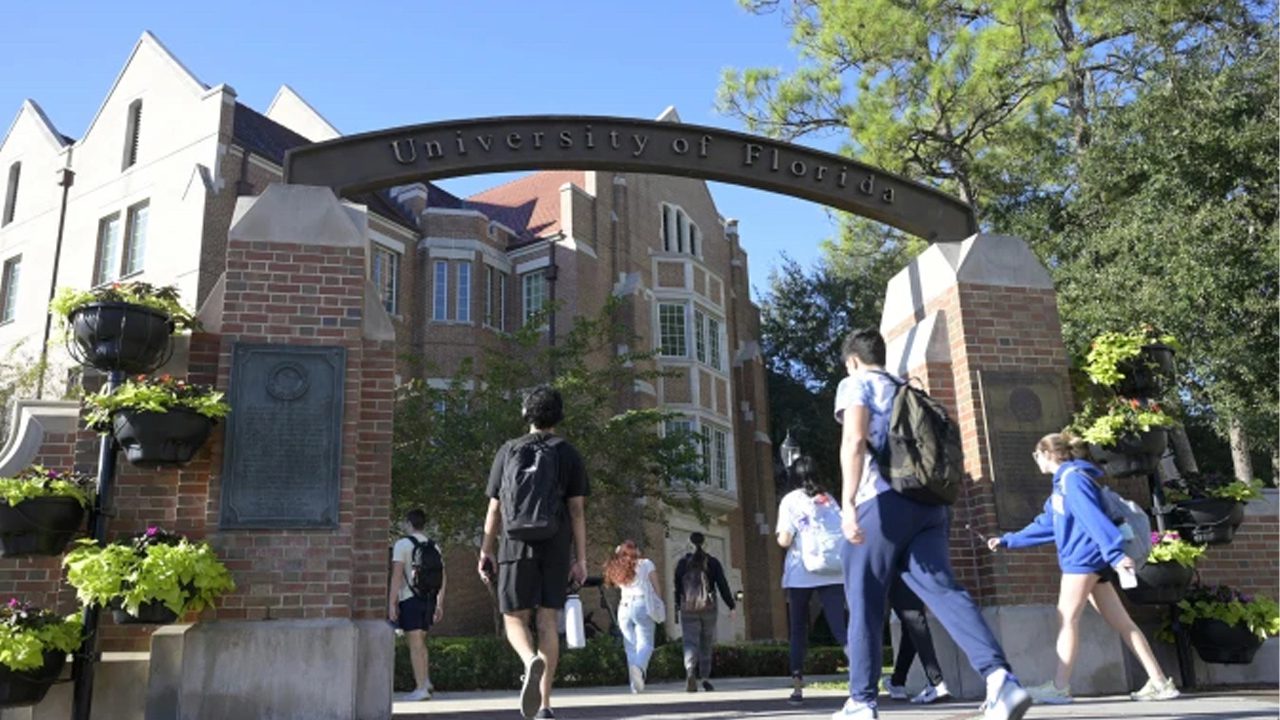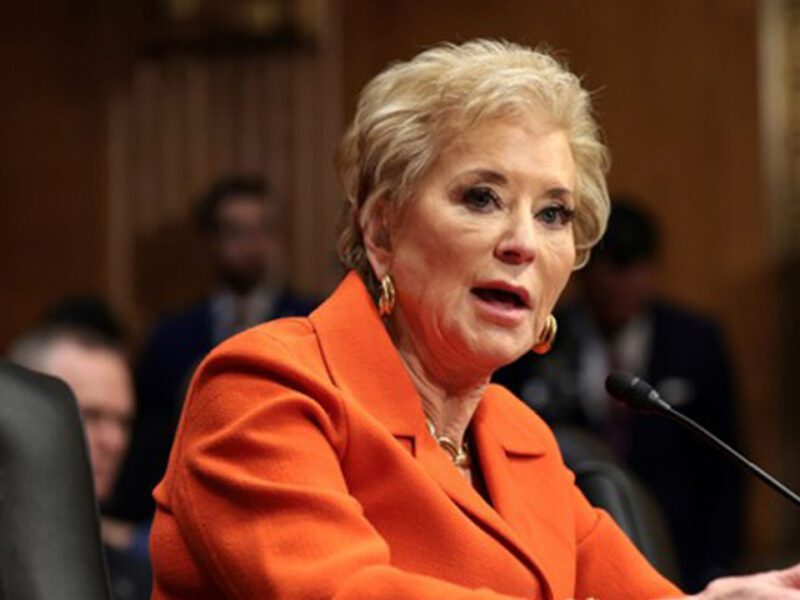
Florida adds ‘classical’ test for students seeking Bright Futures
State considering CLT for university admissions, too
Orlando Sentinel | By Leslie Postal | May 11, 2023
Florida high school students will have another college admissions test they can take to qualify for the state’s Bright Futures scholarship program, with the new Classic Learning Test now an option in addition to the ACT or SAT, whose scores have long been needed to secure the financial awards.
Allowing the CLT to be used for Bright Futures, the state’s popular, 25-year-old scholarship program, dovetails with the DeSantis administration’s interest in “classical education,” often described as a traditional education based on “truth, beauty and goodness.”
Gov. Ron DeSantis signed the legislation (HB 1537) Tuesday at the True North Classical Academy in Miami, a charter school that says education on its campus is “rooted in the history of Western thought and learning.”
In coming years, teenagers might also be able to use the CLT as an alternative to the ACT or SAT when applying to Florida’s state universities. That would require approval from the Board of Governors, which is in the “very early” stages of considering the change and hasn’t yet voted on it.
New College of Florida — being remade after Gov. Ron DeSantis appointed six conservative members to its board in January — announced Monday it would be the first of Florida’s 12 public universities to accept the CLT for admissions instead of only the ACT and SAT.
But that announcement appears premature and based on an incorrect reading of HB 1537.
The new, multi-pronged education law authorizes the CLT for Bright Futures and as a way to meet high school graduation requirements.
It does not authorize the CLT to be used in admissions.
State rules currently require students who want to attend Florida’s public universities to submit either an ACT or an SAT score when they apply, and those test scores factor heavily in admissions, especially in the more selective schools.
The CLT, which debuted in 2016, is a small player in the college admissions test market, accepted at only about 200 colleges nationwide, mostly small Christian schools. It markets itself as a test that focuses on “the greatest and most enduring texts that have informed and shaped society” and does away with “meaningless reading passages stripped of beauty, rich vocabulary, virtue, and intellectual rigor.”
The CLT tests grammar, English and math. It says two-thirds of its reading and writing passages come from its “author bank,” focused heavily on ancient, medieval and “early modern” (from mid-1400s to early 1800s) writers.
Bright Futures scholarships, which can cover full tuition and fees at Florida’s public universities, currently require good grades, volunteer or work hours and scores on the ACT or SAT that equate to the 89th percentile nationally. Under the new law, the state will determine what CLT score represents the equivalent achievement.
No other state has adopted the CLT for use in statewide programs.
“Florida is the first state to make this move,” said Noah Tyler, the company’s chief financial officer. “It’s very exciting.”
CLT previously pushed to get Tennessee to allow the test to be used for its scholarships and for state college admissions but ran into “headwinds” and lawmakers never approved a plan, he said.
In Florida, state leaders have initiated the expansion of the CLT into “the public space,” Tyler added.
He declined to say how many students take the CLT each year but said interest in the exam, mostly taken online, has grown rapidly.
“The classical learning model has really taken off the last few years,” said Rep. Alex Rizo, R-Hialeah, a co-sponsor of the legislation.
That made lawmakers interested in making the CLT a choice for students trying to earn a Bright Futures scholarship. “It’s an option,” he said in a phone interview. “Is this a direct shot at the ACT or SAT? It really isn’t.”
He noted that students who prefer the SAT or the ACT can continue to take those exams as they seek Bright Futures but can try the CLT if they want.
“We’ll see how popular it is,” he added.
But DeSantis has been in a public feud with the College Board, which makes the SAT, since January, when his administration announced the rejection of the Advanced Placement African American studies course over “woke” content it found objectionable.
The College Board also runs the 38-course AP program, popular in many Florida high schools among students who want challenging classes and a chance to earn college credit.
The new legislation, which also waives tougher graduation rules for the class of 2023 and eases teacher certification requirements, makes it clear Florida leaders want a state-based alternative to the AP program. The law authorizes experts at Florida colleges and universities to develop advanced courses and an outside agency to develop tests.
It also allows school districts to offer the CLT to their students using state funds. Florida school districts, with $8 million from the state, now administer either the SAT, which is the most popular, or the ACT to their 11th graders.
Students who wanted to take the CLT could also sign up on their own, as many do if they take the SAT or ACT more than once, and would pay $54 for each test session.
Classical education is part of the planned remake of New College, the small liberal arts school in Sarasota, and so its interest in the CLT is not surprising.
DeSantis’ six new, conservative trustees moved quickly to fire the college’s president and to start revamping what one of them called a “notoriously left-wing campus.”
DeSantis’ chief of staff said, “It is our hope that New College of Florida will become Florida’s classical college, more along the lines of a Hillsdale of the South.”
Hillsdale College, a conservative Christian school in Michigan, touts classical education and offers curriculum and training for K-12 schools that want to adopt that model. The college has close ties to DeSantis, who appointed a Hillsdale dean to the New College board, and to the Classic Learning Test.
Three Hillsdale educators serve on the CLT board, as does Christopher Rufo, who is also a newly appointed New College trustee. Rufo, a conservative writer, has led the fight against teaching critical race theory in schools.
On Monday, New College said it would accept the CLT “as an alternative to the SAT and ACT for students applying for admission for the Fall 2024 term pending the bill becoming law.”
New College’s interim president, Richard Corcoran, in the release touted the CLT as “not only a tremendous opportunity for New College, but with the growing popularity of the CLT among Florida homeschoolers and classically educated students, we believe this is an exciting step for educational choice and freedom in our state as well.”
In an email from its communications office, an unnamed person said the bill referenced in the press release was HB 1537. The college did not respond to follow-up emails and phone calls asking for clarification as the law does not authorize the CLT for admissions.
Renee Fargason, a spokesperson for the board of governors, said in an email that the board regulation that requires submission of either an ACT or SAT score for admissions at the 12 state universities “is on the suggested list for potential revisions for consideration by the Board of Governors.”
She said also said it “very early in our implementation process, so I do not know when it will come up for consideration at this time.”
Fargason did not respond to follow-up emails or a phone call requesting information about New College’s announcement, which remains on its website





